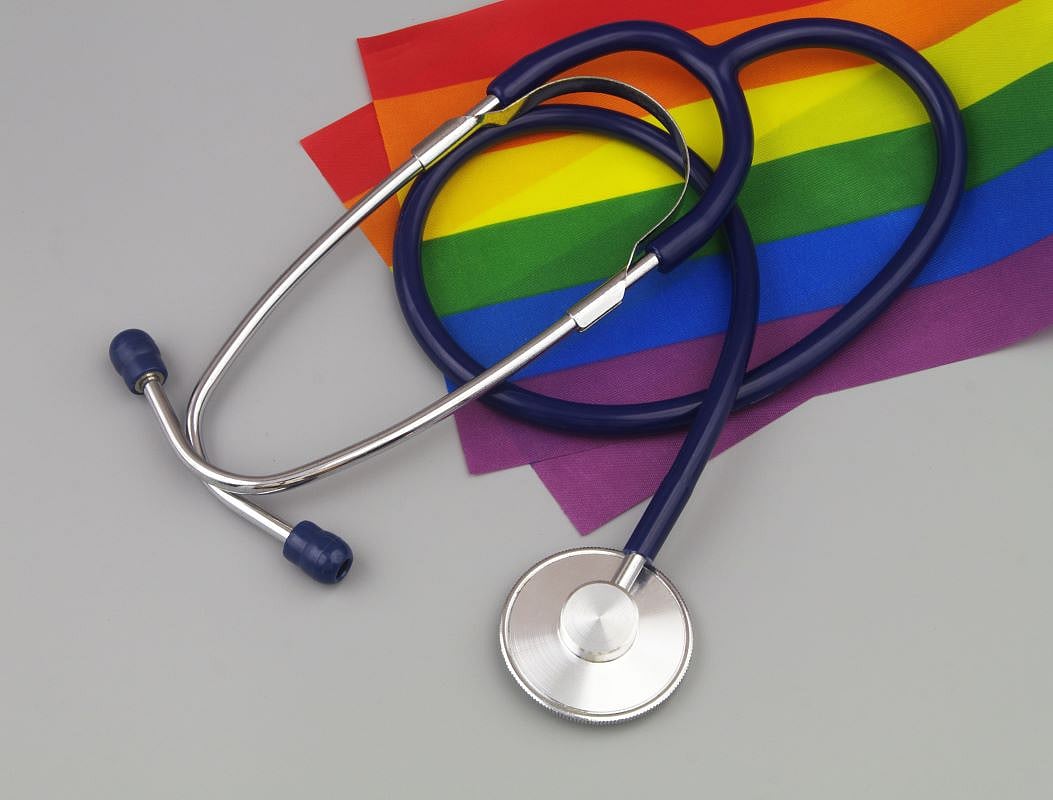Get Healthy!

- Dennis Thompson
- Posted February 20, 2025
LGBTQ+ Stress and Stigma Increase Risk of Mental Health Problems
The societal stress and stigma of being LGBTQ+ can increase a person’s risk of mental health problems, a new study suggests.
People in sexual and gender minorities are more likely than heterosexuals to suffer from problems like anxiety, depression, PTSD, bipolar disorder, ADHD, eating disorders and obsessive-compulsive disorder, researchers reported recently in JAMA Network Open.
But they emphasized that these mental health problems are not caused by these folks' sexual and gender identity, but “reflect the stigma and minority stress experienced by these individuals.”
Factors such as “limited legal protections, exposure to violence, lack of access to gender-affirming treatments, and weaker social support systems” affect LGBTQ+ people physically and mentally, “heightening the risk of mental health issues over time,” a team led by senior author Marvin Langston concluded. Langston is an assistant professor of epidemiology and population health at Stanford University.
For the study, researchers analyzed responses from nearly 270,000 people participating in the All of Us Research Program, a national project designed to explore mental health disparities.
Of those participants, more than 22,000 self-identified as a member of a sexual or gender minority.
The study compared people’s risk for 10 mental health conditions: anxiety, attention deficit hyperactive disorder (ADHD), autism, bipolar, eating disorder, depression, obsessive-compulsive disorder (OCD), personality disorder, post-traumatic stress disorder (PTSD) and schizophrenia.
Results show that people in sexual or gender minorities run a greater risk of these problems:
Gay men had higher odds for 9 of the 10 conditions compared to heterosexual men, except for schizophrenia.
Lesbian women had higher odds of all 10 conditions compared to heterosexual women.
Gender diverse people assigned female sex at birth exhibited higher odds of 9 of 10 commonly diagnosed mental health conditions. That excluded schizophrenia when compared with cisgender heterosexual men and eating disorders when compared with cisgender heterosexual women. (Cisgender means a person's gender identity corresponds with the sex they were assigned at birth.)
Gender diverse people assigned male sex at birth had higher odds for 9 of 10 mental health conditions compared with cisgender heterosexual men, excluding schizophrenia, as well as higher odds of ADHD, bipolar disorder, OCD, personality disorder and PTSD when compared with cisgender heterosexual women.
Transgender men had higher odds for 8 of 10 mental health conditions compared with cisgender heterosexual men, excluding autism and schizophrenia.
Transgender women higher odds of autism, personality disorder, PTSD and schizophrenia compared with cisgender heterosexual women.
Gender diverse people express behaviors and appearances that do not match traditional ideas about gender, while transgender people consistently identify with a different gender than that assigned at birth, according to the American Academy of Child & Adolescent Psychiatry.
In particular, gender diverse people assigned female sex at birth had 3.7 times higher odds of PTSD, 2.3 times the odds for anxiety, and 2.6 times higher odds of depression compared to cisgender heterosexual men, researchers noted.
“This may be attributed to increased exposure to traumatic experiences such as discrimination, rejection, and the cumulative stress of navigating a society that often fails to recognize or validate gender diverse identities,” researchers wrote.
The current political climate in the U.S. has likely driven many of these mental health problems or made them worse, argues an accompanying editorial written by Mandi Pratt-Chapman, an associate professor of medicine at George Washington University.
“Recent antitransgender advertisements leading up to the 2024 election have exponentially increased stress and stigma for the transgender community,” Pratt-Chapman wrote.
“This additional stress, reduced safety, and the rollback of health care access is likely to exacerbate the already dire disparities” identified in the new study, Pratt-Chapman continued.
Unfortunately, she said, the implementation of policies under U.S. President Donald Trump will stymie efforts to address these mental health concerns.
“Sex discrimination would be mandated to be interpreted based on a strict biological binary that flies in the face of the normal human spectrum of biological variance in sex characteristics,” Pratt-Chapman wrote.
For example, the U.S. Centers for Disease Control and Prevention website on sexual and gender identity terminology currently features a banner that reads:
“Per a court order, HHS is required to restore this website as of 11:59PM ET, February 14, 2025. Any information on this page promoting gender ideology is extremely inaccurate and disconnected from the immutable biological reality that there are two sexes, male and female.
“The Trump Administration rejects gender ideology and condemns the harms it causes to children, by promoting their chemical and surgical mutilation, and to women, by depriving them of their dignity, safety, well-being, and opportunities. This page does not reflect biological reality and therefore the Administration and this Department rejects it.”
More information
The American Academy of Child & Adolescent Psychiatry has more on transgender and gender diversity.
SOURCE: JAMA Network Open, study, Jan. 29, 2025

